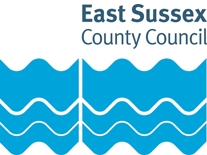We all know the importance of looking after our own health, but sometimes we need a helping hand to begin our wellbeing journey, or even to stay on track.
To help you, East Sussex County Council will be making changes to the One You East Sussex service, which supports people in addressing a range of behavioural risk factors such as poor diet or smoking and drinking. Welcome to One You East Sussex: Get Back to a Healthier You
The service will continue to be open to everyone but from 1 April 2024 will take a personalised approach to supporting you to eat well, manage your weight, move more, quit smoking and drink less. This will be based on an individual’s needs, rather than their preferences and will allow the service to focus more of its support on those with the highest needs and who can gain the greatest health benefits.
The provider will also start to review decisions made about people’s support needs in the early stages to ensure they are correct. This will allow the provider to be flexible around contact methods, how support is offered and meeting individual needs.
We will also require the new provider to help tackle digital inclusion through the work they do directly with people, and through putting people in touch with other providers. This might include offering skills training, helping people to access technology, and tackling barriers to digital inclusion such as motivation, trust and useability.
A consultation completed by 120 people identified some clear themes when it came to your concerns. These focused on contact methods, flexibility, and digital exclusion. For the full consultation results visit our website.
In response to your feedback, we will also make it clearer that the provider will be flexible in how they work with people, with delivering care that meets an individual’s identified needs one of the key principles of the service.
Our Equality Impact Assessment also identified some actions to help advance equity within the service. These covered gaps in equalities monitoring, provision of online support, ability to access face-to-face support, and receiving limited consultation responses from those with certain protected characteristics.

